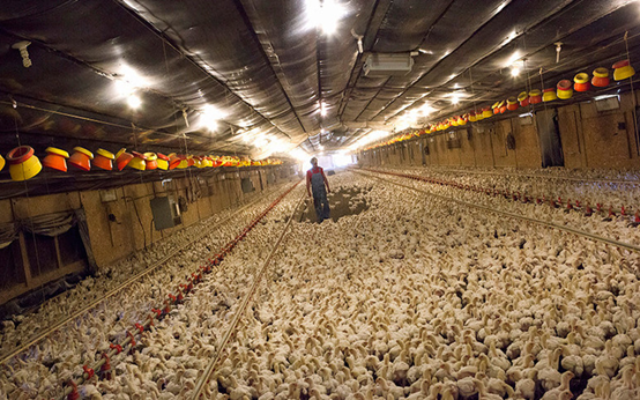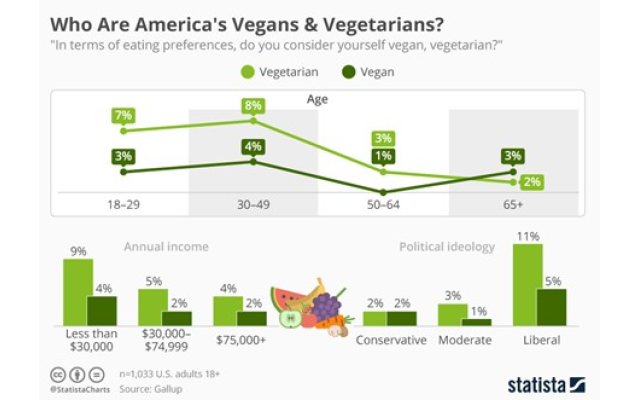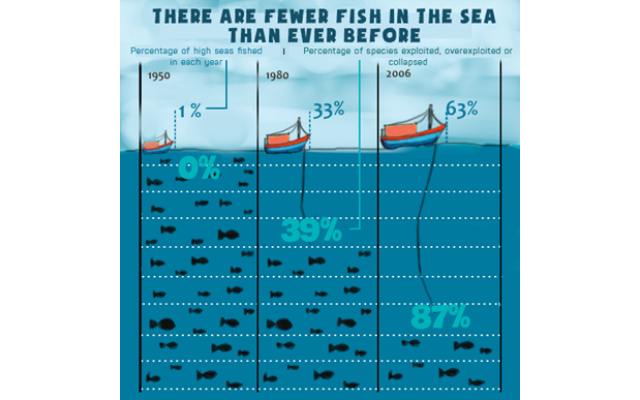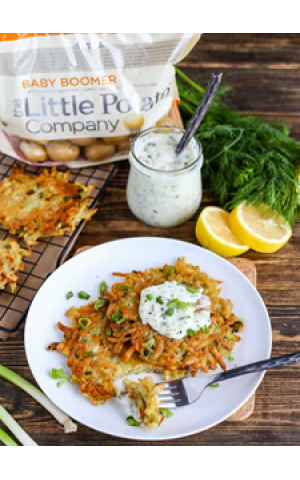Is it Cool to Be Vegan?
Veganism has come a long way from the margins of American food culture to the mainstream, especially among younger millennials and Gen Z. What’s driving its popularity?

Veganism has come a long way from the margins of American food culture to the mainstream, especially among younger millennials and Gen Z. What used to be a joke or rarity has become a full-fledged lifestyle for people from a wide range of backgrounds. No longer just a food movement, it encompasses concerns with animal rights, social and economic justice, environmentalism, mindfulness, and health and wellness in general. Between 2014 and 2017, according to GlobalData, the number of Americans who identified as vegan grew from 1 percent to 6 percent, driven by the rise of social media, environmental issues, and the availability of plant-based options.
Broadly speaking, veganism as a way of living that attempts to exclude all forms of animal exploitation and cruelty — whether in the production of food, clothing, or any other industry. With the rise of social media, veganism has gotten more exposure than ever before, with influencers and startup brands endorsing the trend. And, as many Americans have grown more conscious of their health and habits, plant-based diets have increasingly become an essential part of wellness, alongside practices such as yoga and meditation. Influencers include tennis player Venus Williams, who credits a vegan diet with changing her life following a Sjogren’s Syndrome diagnosis, and Atlanta Falcon Matt Ryan, who in 2019 said he had eliminated all meat and dairy products from his diet.
Information about vegan diets circulates prominently on the internet, most notably through documentaries. One of the most popular is the Netflix documentary “Game Changers,” which makes very bold claims about how a plant-based diet can help your body perform to the best of its ability. It features examples of athletes switching to a plant-based diet and then breaking their personal and/or world records. Apparently, these athletes are running faster, jumping higher, and lifting more than they ever did on diets that included animal products. This documentary, among others, has been credited with converting a lot of people to veganism.

The internet has also given consumers access to never-before-seen footage of how large-scale factories function, how corporations (mis)treat their employees, and all the horrific things that happen in the meat and dairy industries. In school, we are often taught that we must eat animals in order to get protein. As kids, we see chicken nuggets that come in fun shapes and colorful packaging that features smiling faces. With this advertising, chicken has words like fun and healthy associated with it, but as more footage and information is released about animal factory farming, the positive associations are going away. The cruel living conditions these animals live in for our benefit are now being exposed. Images of animals being abused and raised inhumanely are turning people away from supporting the corporations that profit from factory farming. In addition to terrible conditions for the animals, workers in meat plants and chicken farms — many of them immigrants — are also forced to work in unsafe environments for little pay, resulting in thousands of injuries each year.
The environmental impact is profound. For example, it takes approximately 1,847 gallons of water to produce one pound of beef. Water is required to grow the feed for the cow, to hydrate the cow, and irrigate the land that the cow is grazing on. Simply eliminating red meat from your diet can save thousands and thousands of gallons of water and aid in other environmental issues. Cows require a lot of land, which causes deforestation and habitat loss for other species. Cows also produce a lot of methane through gastronomical release, which increases concentrations of harmful greenhouse gases in the atmosphere.

Other casualties of animal farming include marine life and oceans. The seafood industry contributes to overfishing and bycatch, leading to dangerous imbalances in delicate ecosystems and dwindling populations of fish and crustaceans. Bycatch occurs when species other than the target species — such as sharks, whales, and dolphins — are caught in fishing nets. This results in the extinction of some species and the overpopulation of others. The effects aren’t limited to the ocean; they have consequences for those who live on land, too, since the ocean plays a huge role in cooling the earth.
I believe that our society, including all the generations, has become profoundly disconnected from the natural world. With the rise of technology and automation, we’ve become numb to how our lives affect the environment we rely upon. We are so busy sharing pictures of our morning latte on social media that we do not think about stealing milk from a cow that was intended for its calf, just so we can flavor our coffee. Our rushed and busy lives require fast food, and fast food requires factory farming. If we all take the opportunity to slow down and think about where we are getting our food from, it will shine a huge spotlight on the inhumane practices that sustain this cycle.
As a member of Gen Z, I believe that it is our job to heal the environment. The environment is in an almost irreversible decline, so there is a huge sense of urgency to do anything we can to help. The environment is the single most important thing that we need to worry about right now. Politics, the economy, conservatives vs. liberals — none of these issues matter if there is no earth to live on. As a generation that is growing up and one day hopes to raise families, we are desperate to keep our planet alive.

Switching to a plant-based diet, let alone lifestyle, can be a daunting task. If you are someone that loves the taste of meat, or have been eating it your whole life, you may be uninterested in trying to change, and this is completely understandable. If you are still interested in helping or supporting veganism, though, here are some ways to support it.
Meatless Mondays: Eliminating meat from your table just one day a week can have a huge positive effect on the environment and can also help you transition to a plant-based diet.
Shop Smart: If you still want to eat meat, you can choose to shop more sustainably. Shopping local and supporting small businesses that humanely raise and kill animals is much better than buying factory-farmed meat from a corporation.
Ask Questions: If a friend or family member is transitioning to a plant-based diet, feel free to ask as many questions as you want. As a vegan, I have no problem answering any questions that someone has about my diet and lifestyle.
Benjamin Ladinsky is a political science major completing his senior year at Kennesaw State University.
Vegan Potato Latkes
 If you are interested in trying a plant-based recipe this holiday season, here is a delicious latke recipe that I use every year for Chanukah.
If you are interested in trying a plant-based recipe this holiday season, here is a delicious latke recipe that I use every year for Chanukah.
2 cups packed, grated, and drained potato
1/3 cup unbleached all-purpose flour
3 tbsp sliced green onion
3 tbsp unsweetened nondairy milk
1 tbsp cornstarch
1 1/4 tsp salt
1/2 tsp baking powder
black pepper, to taste
vegetable oil, for frying (canola, olive, or coconut all work well)
optional: 2 tbsp fresh, chopped dill
optional: 1/4 cup vegan cheese shreds
Grate potatoes and squeeze out as much moisture as you can using
paper towel.
Combine 2 cups grated potato, flour, green onion, almond milk,
cornstarch, salt, baking powder, and black pepper (optional: add dill
and vegan cheese.) Mix well to develop the gluten in the flour
(which helps with binding.)
In a frying pan, preheat a generous amount of vegetable oil over medium heat.
Spoon 1/4-1/3 cup of potato mixture into the pan. Use a spatula or pancake flipper to flatten the patty to about 1/4” thick. Fry
until golden brown, flip, and fry the other side. Drain excess oil on paper towel if necessary.
Serve with your favorite toppings (we used sliced green onion, tzatziki, and black pepper.
- Health and Wellness
- Community
- Ben Ladinsky
- Statista.com
- Survey
- vegan
- vegetarian
- Kennesaw State University
- Veganism
- American food culture
- mainstream
- Millennials
- Gen Z
- lifestyle
- Food Movement
- animal rights
- social and economic justice
- Environmentalism
- Mindfulness
- GlobalData
- social media
- environmental issues
- plant-based options
- animal exploitation
- Animal Cruelty
- Venus Williams
- Sjogren’s Syndrome diagnosis
- Atlanta falcons
- Matt Ryan
- products
- dairy products
- diet
- Netflix
- Game Changers
- Internet
- plant-based diet
- athletes
- meat industry
- dairy industry
- Chicken
- animal factory farming
- meat plants
- chicken farms
- immigrants
- unsafe environments
- Water
- Beef
- Cow
- deforestation
- habitat loss
- species
- methane
- gastronomical release
- Greenhouse gases
- atmosphere
- marine life
- oceans
- seafood industry
- overfishing
- bycatch
- ecosystems
- populations
- Fish
- crustaceans
- Earth
- natural world
- Milk
- Fast Food
- Environment
- Shop local
- small businesses
- Vegan Potato Latkes
- Chanukah



comments